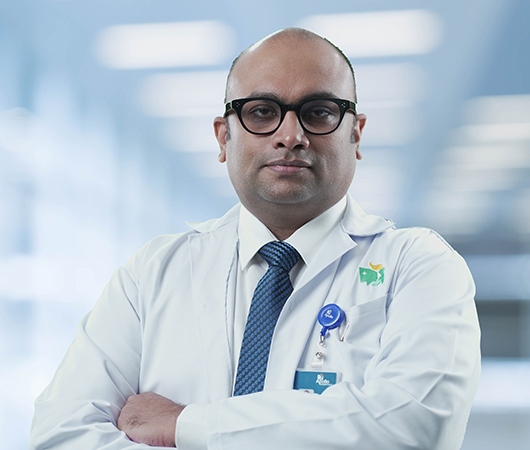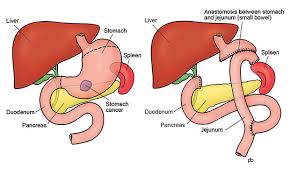Gastrointestinal Cancer Surgery: Treatment and Options for a Life-Saving Procedure
Introduction to Gastrointestinal Cancer
Gastrointestinal (GI) cancers refer to a group of cancers that occur in the digestive system, which includes the esophagus, stomach, liver, pancreas, small intestine, colon, and rectum. These cancers can be life-threatening, but with early detection and proper treatment, including gastrointestinal cancer surgery, patients can significantly improve their chances of recovery.
Surgical interventions remain a cornerstone in the treatment of GI cancers, as they can remove tumors, alleviate symptoms, and increase the patient's quality of life. The type of surgery and the success rate vary depending on the cancer's location, stage, and the patient's overall health.
In this article, we will explore the different types of GI cancer surgeries, treatment options, and the factors that affect the surgical outcomes for patients.
Types of Gastrointestinal Cancer Surgeries
There are several types of gastrointestinal cancer surgeries, each tailored to the specific type of cancer, its location, and the stage of the disease. Here are the main types of surgeries used in the treatment of GI cancers:
1. Esophageal Cancer Surgery
Esophageal cancer is a serious condition that affects the esophagus, the tube connecting the throat to the stomach. Surgery for esophageal cancer may involve:
- Esophagectomy: This is the removal of part or all of the esophagus. The remaining part of the esophagus is then reconnected to the stomach, or a section of the stomach may be used to create a new esophagus.
- Laparoscopic Surgery: Minimally invasive surgery where small incisions are made to remove the tumor and surrounding tissue.
Esophageal cancer surgery is typically recommended for early-stage cancers. The goal is to remove the cancerous cells while preserving as much of the digestive system as possible.
2. Stomach Cancer Surgery
Surgery is the primary treatment for stomach cancer, also known as gastric cancer. The most common surgical options for stomach cancer include:
- Partial Gastrectomy: Removal of part of the stomach where the tumor is located.
- Total Gastrectomy: Removal of the entire stomach, followed by reconstructing the digestive system, typically by connecting the esophagus directly to the small intestine.
- Laparoscopic Surgery: A minimally invasive option that uses small incisions and a camera to guide the surgeon in removing the cancerous tissue.
The surgery type depends on the cancer's size and location. If the cancer has spread significantly, the goal of surgery may shift toward palliative care to relieve symptoms.
3. Pancreatic Cancer Surgery
Pancreatic cancer is known for being difficult to treat, but surgery can be an effective option in certain cases. Types of surgeries for pancreatic cancer include:
- Whipple Procedure (Pancreaticoduodenectomy): This is the most common surgery for tumors in the head of the pancreas. It involves removing part of the pancreas, the duodenum, part of the bile duct, and the gallbladder.
- Distal Pancreatectomy: Removal of the body and tail of the pancreas.
- Total Pancreatectomy: Removal of the entire pancreas, which can also include the spleen and other nearby organs.
For patients with early-stage pancreatic cancer, surgery can significantly improve the chances of survival, but this is often combined with chemotherapy to ensure better outcomes.
4. Colorectal Cancer Surgery
Colorectal cancer affects the colon or rectum and is one of the most common GI cancers. Surgical options for colorectal cancer depend on the location and stage of the tumor:
- Colectomy: Removal of the section of the colon that contains the tumor. If necessary, the surgeon will reconnect the healthy parts of the colon.
- Abdominoperineal Resection (APR): Removal of the rectum and anus for rectal cancer, with the creation of a permanent colostomy.
- Laparoscopic Surgery: A minimally invasive procedure that removes tumors through small incisions, with less recovery time than traditional surgery.
For localized colorectal cancer, surgery is often curative, but more advanced stages may require chemotherapy or radiation therapy in addition to surgery.
Factors Affecting Surgical Outcomes
Several factors can impact the outcome of gastrointestinal cancer surgery, including:
- Stage of Cancer: Early-stage cancers are more likely to be treated successfully with surgery, while advanced-stage cancers may require more aggressive treatment options.
- General Health: The patient’s overall health and ability to recover from surgery are critical. Conditions such as heart disease or diabetes may impact the surgery's success.
- Location of the Tumor: Tumors located in accessible areas are easier to remove surgically. In contrast, tumors in hard-to-reach areas may require more complex surgery.
- Age and Lifestyle: Older patients or those with a history of smoking or alcohol consumption may face higher risks during surgery.
Post-Surgery Care and Recovery
The recovery period after GI cancer surgery can vary depending on the type of surgery, the patient's health, and whether other treatments like chemotherapy or radiation are needed. Generally, patients can expect the following during their recovery:
- Hospital Stay: Patients usually stay in the hospital for a few days to a week after surgery. During this time, they will be monitored for complications like infection or bleeding.
- Dietary Adjustments: After surgery, patients may need to follow a specialized diet. For example, those who undergo gastrectomy or pancreatic surgery may need to make adjustments to their eating habits, eating smaller meals more frequently.
- Physical Rehabilitation: Depending on the extent of the surgery, physical therapy may be necessary to help regain strength and mobility.
Regular follow-up appointments will be necessary to monitor for any signs of cancer recurrence and to assess overall health.
Why Choose Healtour Solutions for Gastrointestinal Cancer Surgery?
Healtour Solutions offers expert treatment for gastrointestinal cancers in India. With a network of top hospitals and highly skilled oncologists and surgeons, we provide:
- Affordable Treatment Options: Our partner hospitals offer cost-effective treatments compared to Western countries, without compromising on quality.
- Expert Care: Our network includes some of the best oncologists and surgeons in the world, specializing in gastrointestinal cancers.
- State-of-the-Art Facilities: We offer access to world-class medical facilities equipped with the latest diagnostic tools and surgical technologies.
- Comprehensive Support: From diagnosis to recovery, we provide complete medical tourism services, including travel arrangements, accommodation, and personalized assistance.
Gastrointestinal cancer surgery is a crucial treatment option for patients diagnosed with cancers of the digestive system. With early detection and expert care, surgery offers the potential for life-saving outcomes.
If you or a loved one is facing a GI cancer diagnosis, contact Healtour Solutions today to explore your treatment options and begin your journey toward recovery.
Frequently Asked Questions (FAQs) About Gastrointestinal Cancer Surgery
- What is gastrointestinal cancer surgery?
It is a procedure to remove tumors from the digestive organs, including the esophagus, stomach, pancreas, colon, and rectum, to treat cancer.
- When is surgery recommended for GI cancer?
Surgery is often recommended for early-stage cancers and for palliative care in advanced stages to relieve symptoms.
- How long is the recovery after GI cancer surgery?
Recovery varies but can take several weeks to months, depending on the type of surgery and the patient's health.
- Is gastrointestinal cancer surgery effective?
Surgery can be highly effective, especially for early-stage cancers, and can significantly improve survival rates.
- What are the risks of gastrointestinal cancer surgery?
Risks include infection, bleeding, digestive complications, and adverse reactions to anesthesia.
- Can GI cancer surgery be performed laparoscopically?
Yes, many GI cancer surgeries, such as colon and stomach cancer surgeries, can be performed using minimally invasive laparoscopic techniques.
- Will I need chemotherapy after GI cancer surgery?
Chemotherapy may be recommended after surgery to destroy any remaining cancer cells and reduce the risk of recurrence.
- How long will I stay in the hospital after GI cancer surgery?
Most patients stay in the hospital for several days to a week, depending on the type of surgery and recovery progress.
- What is the survival rate for GI cancer surgery?
Survival rates vary by cancer type and stage, but surgery significantly increases survival chances, especially in the early stages.
- How can Healtour Solutions help with GI cancer surgery?
Healtour Solutions connects patients with the best hospitals in India, offering affordable treatments and comprehensive care, including travel, accommodation, and post-surgery support.




